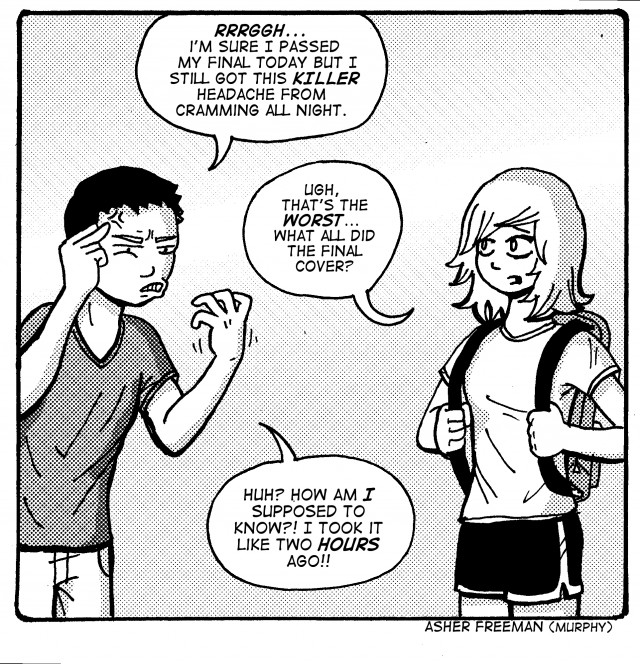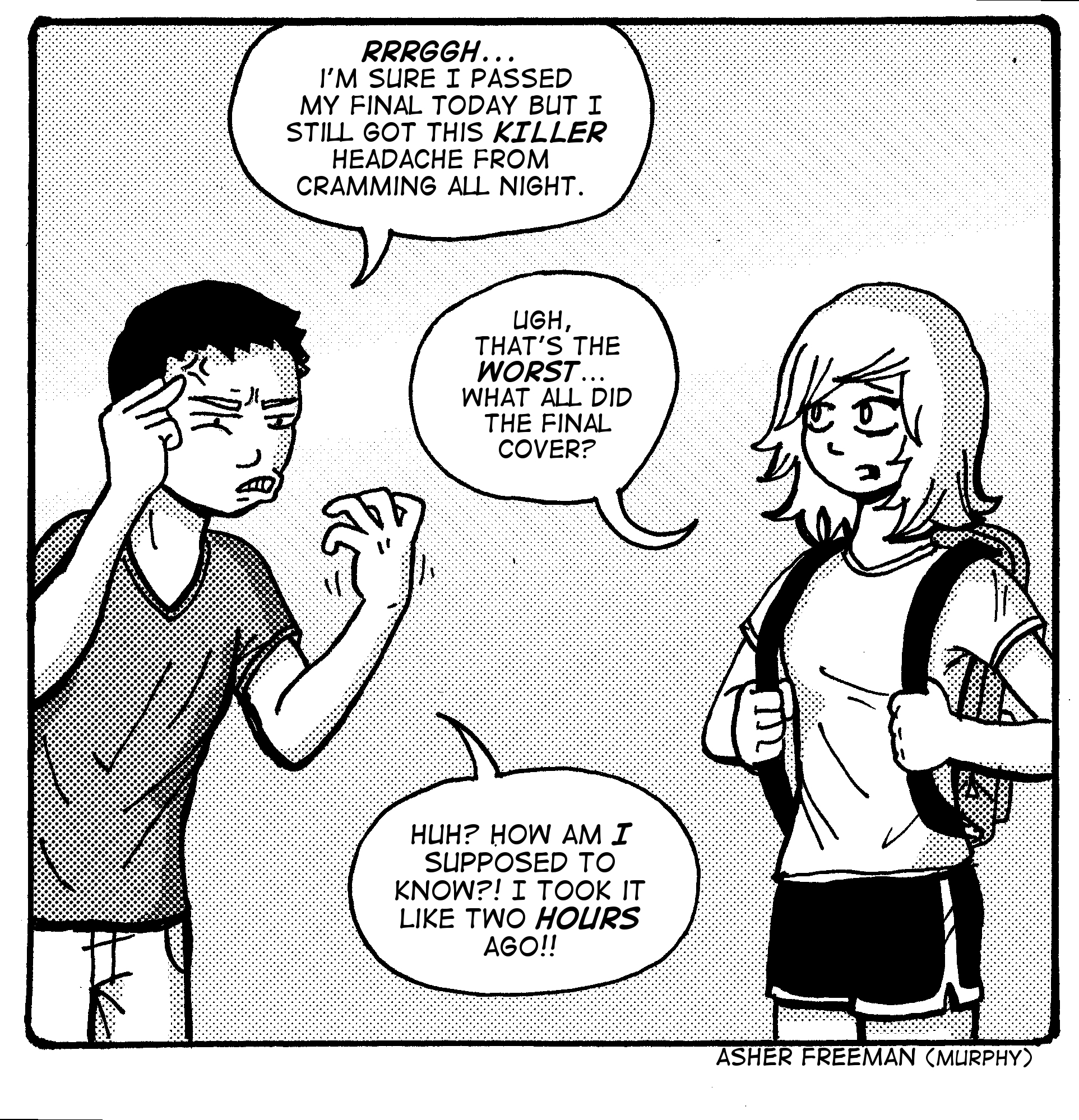 Students have been complaining about stress over tests from time immemorial. The week prior to exams, sleepless students spend time cramming to pass these tests, neglecting rest, food and personal hygiene in the quest for a good — or in some cases, merely passing — grade. In most cases, this can be chalked up to laziness.
Students have been complaining about stress over tests from time immemorial. The week prior to exams, sleepless students spend time cramming to pass these tests, neglecting rest, food and personal hygiene in the quest for a good — or in some cases, merely passing — grade. In most cases, this can be chalked up to laziness.
But when it comes to cumulative finals, it turns out the students who complain may have a point. These exams, usually considered the epitome of all that is stressful, may miss the reason for the exercise in the first place.
The point of classes is to impart knowledge. The point of exams is to test students on the knowledge they gain — and to motivate them to gain the knowledge in the first place.
However, instrumentalism — a mentality in which passing exams, and therefore education in general, is just a means to an end like a good job — is only increased by the giving of comprehensive finals.
Think about it. The “Will this be on the exam?” question is never very far from college classrooms. The question is a problem because it signifies that students are focused on passing the exam, not on gaining knowledge or valuable skills, the ultimate point of a class.
In “Stop Telling Students to Study for Exams,” a blog post on the Chronicle for Higher Education’s website, David Jaffee, a professor of sociology at the University of North Florida, said encouraging students to study merely to pass exams contributes to a dysfunctional system in which instrumentalism reigns supreme.
“One reason is that learning is equated with studying for exams and, for many students, studying for exams means ‘cramming.’
A growing amount of research literature consistently reports that cramming — short-term memorizing — does not contribute to retention or transfer. It may, however, yield positive short-term results as measured by exam scores,” he wrote.
He goes on to cite the confusion of faculty members who don’t understand when students haven’t mastered prerequisite concepts for classes they teach as a result of this trend.
The “why” of the problem is simple. The students never learned the material in the first place. They simply crammed to pass the test and forgot it later. Jaffee calls the cumulative final exam the “zenith” of this dysfunctional system.
If this is indeed the case, then the way we’re approaching higher education isn’t really about education. It’s about getting a diploma.
The two are not the same thing.
Tuition costs are rising. An education at Baylor isn’t cheap, and students expect a return on their investment. For some, this will simply mean a good job.
However, with an active emphasis on the liberal arts in some programs, it’s clear that the value of education as food for the soul hasn’t yet disappeared.
If instrumentalism isn’t the point — and we think it isn’t — why play into a system that just reinforces it?
Harvard doesn’t.
In May of 2010, the august university decided that unless professors specifically went through the trouble of requesting a final examination, none would be given. Previously, faculty would have to request to avoid giving the exam. It reflects a shift in thinking about teaching methods.
It’s clear from these sources that the chapter hasn’t been closed on how we are assessing students’ knowledge. These two sources appear to be the cloudburst before the storm.
So, Baylor, we’d like to feed you an idea: The cumulative final exam may not be a reliable measure of students’ skills and may hinder students in gaining real skills. And yet finals are required in most, if not all, of our classes.
Baylor is seeking improvement with its strategic vision Pro Futuris. Inlcuded in this is a desire to focus on quality academics in both fields of learning and quality of teaching, indicating a desire to be forward thinking in terms of how we approach higher education — and how it’s transmitted to young minds.
So shouldn’t we be at the forefront of this discussion? If we want to be a truly great university, we can’t afford to be followers. We need discussion.
We need to enter the debate. We need to consider if our methods of assessing students may be holding them back from actually learning anything.
Consider it food for thought.






